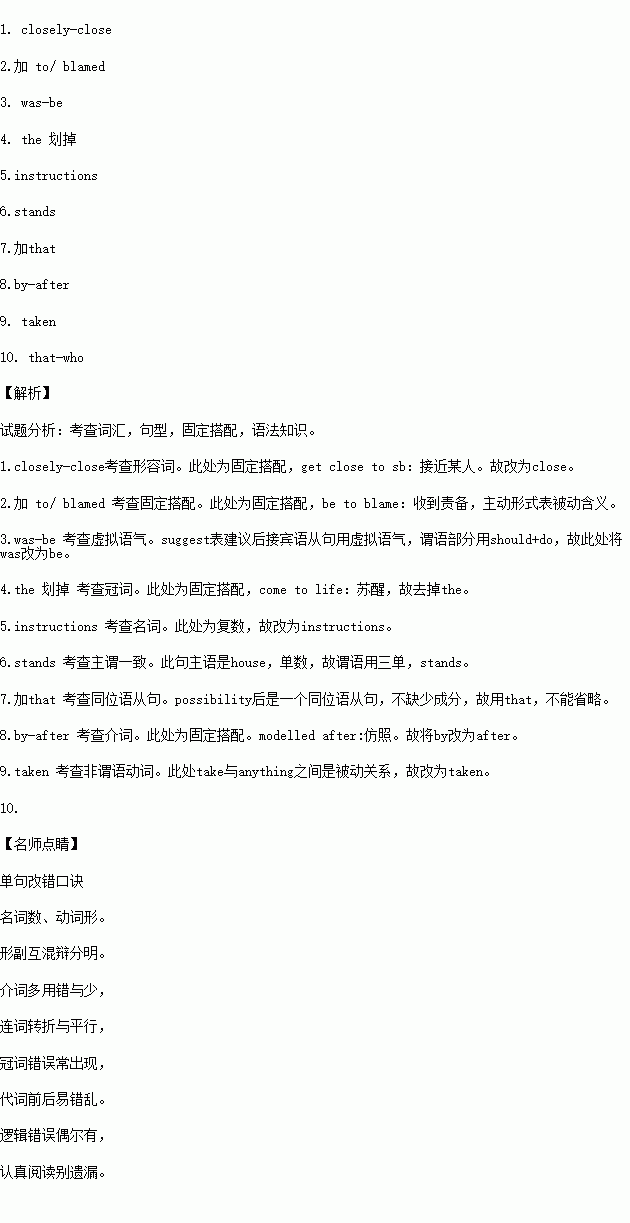题目内容
下面每个句子都只有一处语言错误。每处错误仅涉及一个单词的增加、删除或修改。多改或不按格式要求改不得分。
增加:在缺词处加一个漏字符号(?),并在其下面写出该词。
删除:把多余的词用斜线(\)划掉。
修改:在错的词下面划一横线,并在该词下面写出修改后的词。
1. Please get closely to me so that you can hear me clearly.
2. It is the careless housewife that is blame for the big fire.
3.Jack suggested that the meeting was put off till next week.
4.When Tom came to the life, he found himself in a hospital.
5. Mike was told to take the medicine according to the instruction.
6.There stand a strong wooden house, big enough for forty people.
7. There is no possibility human beings will be controlled by computers.
8. Every area of the Camelot Park is modelled by life in the days of King Arthur.
9.I’m going to Hong Kong next week. Do you have anything to be take to your husband?
10.A woman, that had moved away from Broad Street, liked the water from the pump so much that she had it delivered to her house every day.
 步步高达标卷系列答案
步步高达标卷系列答案
